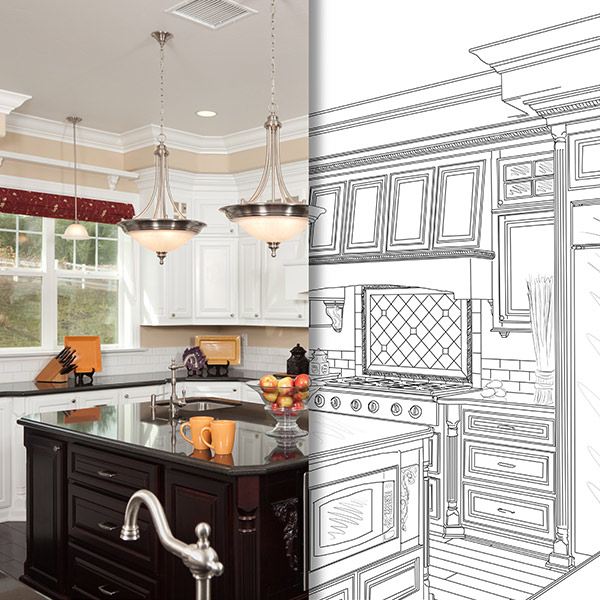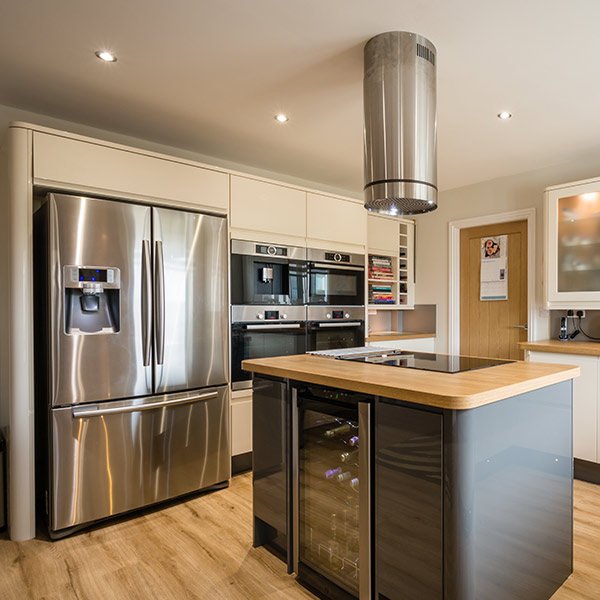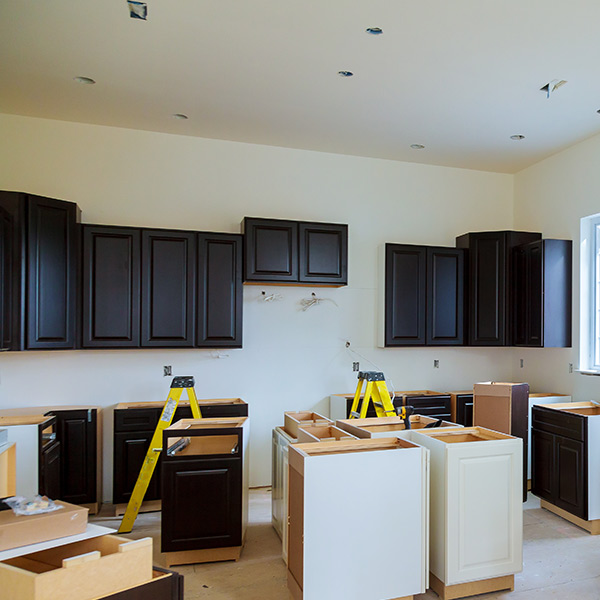Find a local fitted kitchen specialist
The kitchen is often the heart of the home, where you can eat, cook, relax and entertain. A fitted kitchen is a stylish and practical upgrade, tailored so everything is exactly where you want it.
Post your job for free. Read reviews, get quotes, and see tips on hiring the right person.
Browse Fitted Kitchens specialists
Take a look at our Fitted Kitchens specialists profiles, read reviews and request quotes directly.
Fitted kitchen design and installation from local specialists
Old and outdated kitchens can make cooking a chore. It’s also a wasted communal space if you’re only going in there to whip up a meal before returning to the comfort of the living room. Sprucing it up with a renovation or refit can have a huge impact on your day-to-day life.

Kitchen fitting is much more than simply swapping out appliances, cupboards and worktops though. If you’re investing time, effort, emotion and hard-earned cash into a kitchen refit, you’ll want to properly plan everything out. A refit gives you the opportunity to remodel and rearrange elements of your kitchen – for example, moving your oven, installing an island worktop or upgrading your sink to a double bowl. Work with a specialist kitchen fitter and they’ll be able to support you throughout every stage in the process, from design and planning to fitting and commissioning appliances.
Some kitchen fitters will offer both supply and fit services, while others will be happy to fit items that you purchase on your own. It’s important to check with your professional, so you know where you stand before committing to a project.
Cost of fitting a new kitchen
The cost to fit a new kitchen will depend on the quality of appliances, fittings and fixtures, and flooring, as well as the size of the room. Then there’s the removal of the old kitchen, post-refit decorating and any specialist features to consider.
However, typically you can expect to pay:
- Small kitchen: £1,000-£3,000
- Medium kitchen: £4,000-£6,000
- Large kitchen: £7,000-£10,000+
What are the main features of a fitted kitchen?
While there are plenty of custom or premium features you might consider adding to your kitchen, there’s a fairly standard list of items you’ll need to think about.
- Worktops – budget options are laminates, while real wood provides a relatively affordable but authentic finish. At the premium end of the spectrum, a granite, natural stone or composite worktop look elegant, and are also hard-wearing and resistant to heat.
- Units – beyond selecting solid wood or a cheaper veneer, your main consideration will be the colour and finish of your kitchen units. This will naturally be personal preference, but it’s worth thinking about how practical and easy to keep clean they’ll be. Some units will also feature space-saving swing-out corner cupboards or other neat features, so take a moment to investigate these options.

- Appliances – when it comes to appliances, your wallet really is the only limit. From huge American-style double fridge-freezers to integrated slimline dishwashers, there’s a solution for every size of kitchen out there.
- Flooring – traditionally kitchen floors are tiled, but many people opt for wooden flooring now, which isn’t so cold to touch. If your budget can stretch, underfloor heating is a premium feature you may want to consider too.
The key stages in a kitchen refit
Every kitchen is unique, and the exact stages or phases involved in your refit will vary according to the work that needs to be carried out. Typically, though, your renovation will feature:
- Planning and design – understanding how to make the best use of the space available, as well as what you want your kitchen to do for you.
- Removal of your old kitchen – carefully and methodically removing old appliances, units, worktops and flooring, before preparing the room for the fitting of the new kitchen.
- Electrics and plumbing – this step may not be necessary if you’re replacing appliances or features in the same locations, but typically even the most minor alterations will require plugs or light fittings to be moved or altered.
- Fitting new units and worktops – units are typically fitted first, followed by your new worktops. They’ll need to be properly secured using appropriate load-bearing fittings, and this is where the value of an expert can be felt. When fitting your new worktop, your tradesperson will also install your sink.
- Tiling or laying a new floor – with your units in place, your floor can be tiled (or wooden floor fitted).
- Installing new appliances – the last major job will be installing and commissioning your new appliances. Most of these will be fairly straightforward, but gas and certain electric appliances will need to be fitted by Gas Safe and NICEIC-registered professionals.
The qualifications your kitchen fitter needs
As we’ve mentioned, Gas Safe and NICEIC registration will usually be required, as a kitchen refit will inevitably involve installing appliances that run on gas or electric. Beyond that, experience is going to be the most important asset your professional can hold.
City and Guilds qualifications or apprenticeships in carpentry, tiling and plumbing will certainly be beneficial, but the breadth of skills and capabilities demanded when fitting a kitchen means that (to reuse an old cliché) there really is no substitute for experience.
Make sure your tradesperson has a track record of fitting the type of kitchen you’re looking for. So, if you’re seeking to have a tiled floor installed, make sure they’re particularly proficient at tiling. Same goes for any specialist features, such as underfloor heating.
Insurance for kitchen fitting
Public liability cover should be your priority when it comes to insurance. It’s also worth asking about warranties on the work your kitchen fitter delivers.
Appliances will typically be covered by a manufacturer’s warranty, but the work itself can be guaranteed from 5-20 years, depending on the policy your professional operates with.
Questions you should ask your kitchen fitter
- Will they also assist with design and planning?
- Do they have a portfolio or examples of previous kitchens they have fitted?
- Will they be completing the work by themselves, or do they plan to bring in sub-contractors and other third parties?
- Can they provide a warranty on their work?
- Can they dispose of your old kitchen and appliances?
Get our app for homeowners
- Send messages and get notifications from tradespeople
- Add photos to get more accurate quotes
- View tradespeople's profiles
